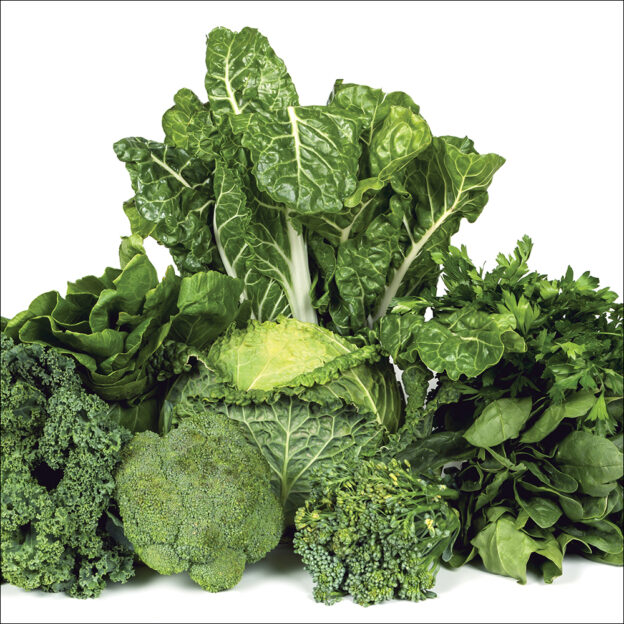Table of Contents
By Diana Allen, MS, CNS

Age-related loss of muscle mass, also known as sarcopenia, is among the most common causes of functional decline and loss of independence in older adults. While the condition is not completely avoidable, there are simple nutritional and lifestyle interventions that can help modify the rate and degree at which sarcopenia occurs.
Unquestionably, muscle strength and function are deeply associated with quality of life in senior citizens. Hand grip strength alone—not to mention arm, leg, and core body strength—is a meaningful clinical predictor of quality of life in older adults. Healthy muscles support one’s ability to balance (avoid falls), perform activities of daily living with ease (maintain independence), engage in pleasurable outdoor activities (preserve quality of life), participate in athletics (remain active), and so on.
Leucine Supplementation & Sarcopenia
When it comes to optimizing muscle physiology and maintaining (or even increasing) muscle mass after loss has occurred, the branched chain amino acid leucine can offer significant benefits.
Specifically, leucine is capable of inhibiting muscle protein breakdown and stimulating muscle protein synthesis—the exact two mechanisms required for counteracting sarcopenic muscle wasting. Animal research has clearly shown that in aging muscle, normal postprandial levels of leucine are inadequate to stimulate muscle protein synthesis; however, supplementation significantly increased leucine concentrations in the body and promoted muscle protein synthesis. Such findings suggest a role for supplementing with this readily available, cost-effective amino acid.
Numerous studies have examined the effect of leucine supplementation on sarcopenia in humans by measuring various parameters such as handgrip strength, body composition, and appendicular skeletal muscle (ASM)—a term referring to all the muscles found in the upper back, shoulders, arms, legs, and pelvic girdle collectively. Assessment of ASM is an important tool for diagnosing geriatric syndromes associated with skeletal muscle wasting.
Amino Acid Profiles
Amino acids—often referred to as the building blocks of proteins—are categorized as essential, nonessential, and conditionally essential.
Of the twenty amino acids, nine are essential, meaning they cannot be produced by the body and must be obtained through food. The nine essential amino acids are: leucine, isoleucine, histidine, lysine, methionine, phenylalanine, threonine, tryptophan, and valine.
Nonessential amino acids are produced in the body and include alanine, arginine, asparagine, aspartic acid, cysteine, glutamic acid, glutamine, glycine, proline, serine, and tyrosine.
The conditional amino acids cysteine, glutamine, tyrosine, glycine, proline, and serine are not essential except in times of illness and stress.
Leucine Supplementation Research
A 2019 randomized controlled trial published in Nutrition gave either an amino acid supplement enriched with high levels of leucine or a placebo to forty-four older post-stroke patients with sarcopenia (age > 65). Muscle mass, muscle strength, and physical function were assessed before and after the intervention. Along with taking either the supplement or placebo, patients in both groups performed low-intensity resistance training and participated in a post-stroke rehabilitation program.
The supplement was taken once daily, contained 3 grams of leucine along with other amino acids, and was consumed within thirty minutes following performance of sit-to-stand exercises. After eight weeks, handgrip strength and Functional Independence Measure improved in both groups, but gains were significantly greater in leucine-supplemented subjects.
With regards to ASM, only those in the leucine treatment group experienced a significant increase. The study authors concluded that together with functional exercise, leucine supplementation increases muscle protein synthesis and function in older sarcopenic adults:
To maximize the effects of the nutritional intervention, the patients in our study received low-intensity resistance training as part of their rehabilitation therapy. Because the patients in our study were older adults with physical limitations, we chose the sit-to-stand exercise from among the many resistance training exercises because it is easy to perform, and assistance can be provided if necessary. Low-intensity resistance training with slow movements has been shown to be a safe and effective way to increase muscle mass and strength in frail older adults.
We show that an eight-week intervention consisting of a leucine-enriched amino acid supplement and low-intensity resistance training increases muscle mass, strength, and physical function in post-stroke patients with sarcopenia. Our study highlights the efficacy and safety of this approach, which is especially suitable for older patients with physical limitations.
A recent meta-analysis of randomized controlled trials published in the British Journal of Nutrition examined the effectiveness of leucine supplementation on muscle protein synthesis and body composition in elderly patients. After conducting a thorough literature review, study authors concluded that compared to control groups, the rate of muscle protein synthesis is significantly increased in leucine supplemented seniors.
Study authors reported, “The age-associated loss of skeletal muscle mass is an important factor in the loss of functional performance and the ability to maintain a healthy lifestyle in the elderly. Sarcopenia is influenced by a combination of factors, including poor diet and sedentary lifestyle.
In one study, it was found that increasing the leucine content in an amino acid mixture could compensate for the blunted response to amino acid ingestion in the elderly, raising the idea that the addition of leucine may be an effective strategy to normalize the postprandial response of muscle protein synthesis in the elderly…. In conclusion, we found that ingestion of leucine significantly increased the muscle protein synthetic rate in elderly individuals, and thus may be of benefit to address sarcopenia in this population.”
Top Foods Rich in Leucine
The essential amino acid leucine performs a number of functions in the body, from building and repairing muscle to regulating blood sugar, supporting wound healing, and producing growth hormones. If you’re looking to add more leucine in your diet, consider high quality protein-rich foods, such as beef, chicken, eggs, salmon, soybeans, sesame and pumpkin seeds, spirulina, and cottage cheese.
Finally, an earlier study published in The Journal of Physiology investigated the effects of dietary leucine supplementation on muscle protein synthesis in healthy elderly individuals (70 ± 1 year). Twenty male subjects were studied before and after adhering to a controlled diet with or without supplemental leucine. The experiment demonstrated that leucine supplementation during feeding improved muscle protein synthesis—a beneficial effect that was due to increased plasma leucine concentrations.
Authors noted, “Over the past several years, it has become clear that muscle protein loss during aging may be partly explained by a decreased ability of old muscle to respond appropriately to food intake… Among amino acids, branched chain amino acids and especially leucine are the most efficient for protein synthesis stimulation…Leucine supplementation represents an effective nutritional strategy to limit muscle protein losses during aging.”
—
Diana Allen, MS, CNS, has worked in the professional supplements industry since 1997. She is a clinical nutritionist in private practice and the Product Development Manager at Moss Nutrition. Diana is the author of two booklets Chia Seed and Natural & Healthy Sweeteners (Woodland Publishing) and can be reached at diana@mossnutrition.com.
Well Being Journal adapted the above excerpt from Moss Nutrition Digest (#33) “Why Leucine Makes Sense for Seniors” by Diana Allen, MS, CNS.
References
- Dardavet D, Rieu I, et al. “Leucine: a key amino acid in ageing-associated sarcopenia?” Nutr Res Rev. 2003 Jun;16(1):61-70.
- Yoshimura Y, Bise T, et al. “Effects of a leucine-enriched amino acid supplement on muscle mass, muscle strength, and physical function in post-stroke patients with sarcopenia: A randomized controlled trial.” Nutrition. 2019 Feb;58:1-6.
- Xu Z, Tan Z, et al. “The effectiveness of leucine on muscle protein synthesis, lean body mass and leg lean mass accretion in older people: a systematic review and meta-analysis.” Br J Nutr. 2015 Jan 14;113(1):25-34.
- Isabelle Rieu, et al. “Leucine supplementation improves muscle protein synthesis in elderly men independently of hyperaminoacidaemia.” J Physiol. 2006 Aug 15; 575(Pt 1): 305–315.





